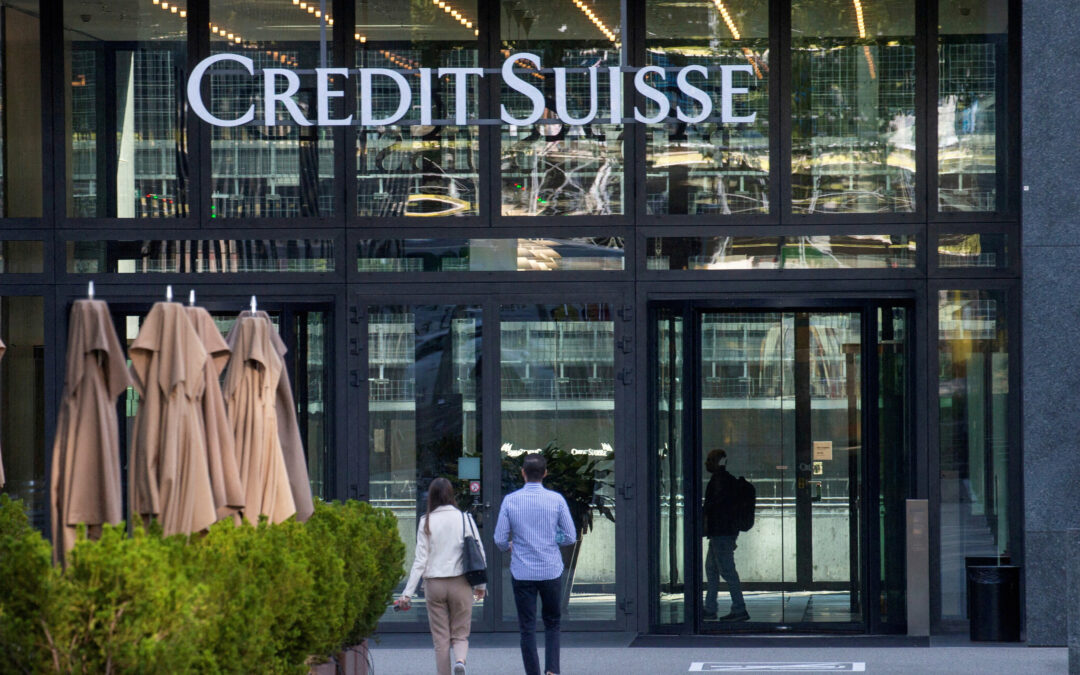It’s been a turbulent week in banking. First was the collapse of the Silicon Valley Bank, followed by the news of Signature Bank just two days later, followed by further news about First Republic Bank.
In the same week, news about Credit Suisse needing a financial injection emerged, combining to provide extreme volatility throughout the markets around fears of a global banking crisis.
However, are these news headlines the same or different issues and how does this affect your own portfolio?
Read on to understand exactly what happened, find out how this may affect you, and what our advice is to ride out the storm.
Credit Suisse:
The global markets have been severely impacted by the uncertainty surrounding Credit Suisse, who have been grappling with regulatory challenges and financial strain for some time now. As fears of increasing interest rates around the globe intensify, historic bank collapses and sudden government interventions have further exacerbated the situation.
Although the collapses of SVB and Signature have drawn attention to Credit Suisse, it should be noted that the issues faced by the three banks are not related.
Credit Suisse has faced several scandals in recent years that have unnerved investors. For instance, the bank mismanaged funds, which was discovered in its 2022 financial report. This led to a loss of nearly $8 billion, the bank’s largest since the 2008 global financial crisis. In June 2022, Credit Suisse was found guilty of failing to prevent money laundering by a Bulgarian cocaine trafficking gang, which allegedly laundered millions of dollars through the bank. As a result, the Swiss government imposed a fine of $2.1 million on the bank and ordered it to pay $20 million to the government.
Additionally, a Bermuda court in March 2022 ruled that Credit Suisse owed former Georgian Prime Minister Bidzina Ivanishvili and his family around $500 million in damages, following a long-running fraud committed by former Credit Suisse adviser, Pascale Lescaudron, against the family through the bank’s local life insurance company. Credit Suisse has appealed the decision, but it estimates that the case will cost around $600 million.
The bank has also been embroiled in other scandals that contributed to what Peter Boockvar, chief investment officer of Bleakley Financial Group, called a “slow-moving car crash” for Credit Suisse. In 2020, Credit Suisse’s Chief Executive Tidjane Thiam resigned after it was discovered that the bank had hired private detectives to spy on its former head of wealth management after he left to join a competitor bank.
Signature Bank:
Signature Bank’s collapse followed SVB’s just two days later, becoming the third-largest bank failure in U.S. history. According to experts, such as former congressman Barney Frank, Signature’s shutdown was caused by “an SVB-generated panic.” Other banks were affected by SVB’s collapse, including First Republic Bank, whose shares fell by as much as 52%. Consequently, the Federal Reserve announced an emergency lending program to help banks meet their depositors’ needs and avoid the need to sell quickly during stressful times.
First Republic Bank:
On Thursday, a joint statement was released from Federal financial regulators detailing a bailout of up to $30 billion put together by 11 of the biggest US banks including Bank of America, Citigroup, JP Morgan Chase, Wells Fargo and others who will deposit significant amounts to help keep the bank steady and solvent.
Silicon Valley Bank:
We have prepared a full article on the Silicon Valley Bank collapse which can be found here. In summary it took just 48 hours for the 17th largest bank in the USA to collapse. It was marked as the biggest U.S. bank failure since the Great Recession.
On March 8, the company announced that it had sold securities worth $21 billion, incurring a loss of $1.8 billion and planning to raise $2.25 billion in capital. The bank, headquartered in California, was a popular choice in the tech industry, catering to clients ranging from startups to venture capital firms and affluent tech employees. Due to concerns about the bank’s stability, several venture capital firms, such as Peter Thiel’s Founder’s Fund, advised their portfolio companies to withdraw their funds from SVB.
What does this all mean for you and your money?
The first thing to do is remain calm and not panic. It’s not all doom and gloom and market volatility can actually represent opportunity provided that you have a diversified, actively managed portfolio.
There will be volatility and by doing something regularly you can actually take advantage of dollar cost averaging to buy during the dip and certain asset classes such as gold actually rally during times like this. If you are purely in equities, particularly in banking you may be a bit more concerned, however, this is why it’s important to have a well-diversified portfolio and a long term investment horizon.
If you already have a portfolio, get in touch with your Wealth Manager to discuss how this may affect your individual portfolio, or if you would like advice on any additional opportunities this may present, please feel free to also get in touch.

